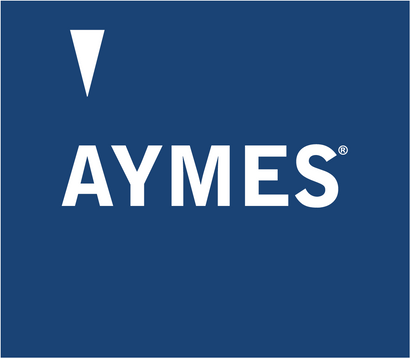Tai Ibitoye is a Dietitian registered with the Health and Care Professions Council (HCPC) and is a full member of the British Dietetic Association (BDA). She has experience working within the NHS, public health organisations, non-government organisations, academia and research. She is currently working in nutrition research, focusing on appetite and dietary intake in older adults. She also sees clients who require weight management and nutrition support advice and delivers nutrition workshops in the community tailored to older adults and individuals from black, asian and minority ethnic (BAME) groups. We interviewed Tai to discuss diversifying nutrition support advice in dietetics.
Hi Tai, please could you tell us a bit about yourself?
My name is Tai Ibitoye and I am a Registered Dietitian and a Doctoral Researcher at the University of Reading. For my research, I am investigating the effects of texture modified diets fortified with protein on feelings of fullness, hunger, desire to eat and prospective food intake in UK older adults. I am also investigating whether changes in the appearance and flavour (taste and aroma) of texture modified meals can influence dietary intake and satiety in the elderly.
Outside of research, I see clients who require weight management and nutrition support advice and deliver nutrition workshops in the community tailored to older adults and individuals from black, asian and minority ethnic (BAME) groups.
Please tell us about your experience of working in nutrition support
During my previous experience as an NHS Acute Dietitian, I assessed patients who were malnourished or at risk of malnutrition and required nutrition support. I would find ways to help individuals meet their estimated energy and protein requirements through the provision of high-energy and high-protein foods and drinks. In some cases where individuals were unable to meet their nutritional requirements through diet alone, I would prescribe oral nutritional supplements in line with the Advisory Committee on Borderline Substances (ACBS) criteria.
One of the wards I covered was a stroke ward and I often saw patients who had dysphagia and required texture modified foods and thickened fluids to reduce their risk of aspiration and choking. I would liaise with speech and language therapists and other members of the multidisciplinary team (MDT) to ensure that the appropriate consistency of food and drinks were provided to patients and I would monitor their nutritional intake and status. In addition, I would also assess and monitor the need for short-term enteral tube feeding (e.g nasogastric tube feeding) or long-term tube feeding (e.g. percutaneous endoscopic gastrostomy tube) to help individuals optimise their nutritional status.
I worked as part of a multidisciplinary team (MDT) and ensured that the care provided was patient-centred.
Do you feel that traditional nutrition support advice is sufficiently tailored towards patients from diverse ethnic/cultural backgrounds?
Not really. However, I do believe that the onus is on Dietitians to ensure that nutrition support advice does not only meet patients’ dietary needs but also their cultural, religious and social needs too.
How could dietitians deliver person-centred care when offering food-first advice to patients from diverse ethnic/cultural backgrounds?
Dietitians can speak to patients or their carers and/or relatives about typical ethnic/cultural foods that are usually consumed at home. Dietitians should be open to learning about different cultural foods and drinks that are high in energy and protein. They could create a cultural-specific ready reckoner to refer to when seeing patients from different ethnicities - this may be more suitable in an outpatient setting.
Taking into account a patient’s cultural background, as well as their dietary needs, in treatment plans may help to increase compliance with the nutrition support advice given. Asking relatives and/or carers to bring patient’s preferred cultural snacks or drinks into the wards or contacting catering services to provide snacks and drinks that are similar can be helpful.
Do you have some examples of ways in which you’ve tailored your nutrition support advice to support your patient’s ethnic/cultural needs?
I assessed a patient of African origin as she was at risk of malnutrition and required nutrition support advice. I went through the dietary assessment with her and asked her what she thinks she can do to increase her calorie and protein intake. She told me that she can make her hot beverages milky as she consumes this a lot. I then asked her about the type of milk she uses and was willing to try (rather than telling her straight away what milk she should use). She told me she uses semi-skimmed milk and I asked if she would consider also using milk powder too and she agreed. I was then able to tell her about Nido, which is a full-fat milk powder that some individuals of African origin enjoy. She agreed to add it to her hot beverages and her cereals. She complied well to this advice as well as other advice given which was evidenced by increased body weight and her being able to maintain an ideal BMI.
Another example is an outpatient of South Asian (Indian) origin who lost a significant amount of weight. I asked the patient about what types of foods (including cultural food) he normally consumes or would like to eat. We then spoke about ways he can increase his energy and protein intake by having nourishing drinks. I was able to talk about making homemade lassi, which is a yoghurt-based drink that is popular in South Asian countries. He was surprised at first that I knew about this, but this made him very keen to try and we were able to discuss different ingredients to add to increase protein content. He complied well to this advice as well as other dietary advice that was agreed with him together. I was able to discharge him as he was doing so well and met his energy and protein requirements as evidenced by no further weight loss.
What other considerations should HCPs take into account when conducting their dietetic assessment? How could this be incorporated into a dietetic consultation?
Other considerations that HCPs should take into account when conducting their dietetic assessment is the religion and social background of patients. This can be incorporated during dietary assessment. It is so important to ask if patients have any dietary restrictions due to religion or upbringing. Some patients tend not to disclose this information unless asked. I once assessed a Jamaican lady who was referred to me for nutrition support. She was a Rastafarian who was not allowed to drink cow’s milk or eggs, I was able to know other dietary restrictions that Rastafarians have and in turn, was able to provide suitable and tailored dietary advice.
Where/how can dietitians find further information about ethnic/cultural dietary needs?
There are not many resources available online about ethnic/dietary needs. I think Dietitians from different ethnic groups should consider creating ethnic-specific resources for their team to give to patients or clients if they can. With this being said, I have contacted the BDA to see whether I could write a food fact sheet tailored to African and Caribbean individuals so that Dietitians can use it for patients from these ethnic groups.
I recommend all Dietitians to get a copy of the Multicultural Handbook of Food, Nutrition and Dietetics by Aruna Thaker and Arlene Barton. It gives an insight into religious and cultural requirements and traditional diets.
How can medical nutrition companies help to support diversity in dietetics?
Medical nutrition companies can help to support diversity in dietetics by championing diversity all year round. They can feature Dietitians and student dietitians from different ethnic groups on blogs and websites. They can also get them involved in nutrition-related promotions and adverts too. Medical nutrition companies can also consider creating webinars, CPDs, or other resources on ways to optimise nutrition status in individuals from different ethnicities which may be beneficial for healthcare professionals.



